Quesma's journey from a $2.5M seed round to an asset sale exposes the brutal realities of tech startups. Founder Jacek Migdal reveals why forced co-founder partnerships backfire, how 'pilot purgatory' kills momentum, and why AI is reshaping database migration tools—essential reading for builders navigating high-stakes tech entrepreneurship.
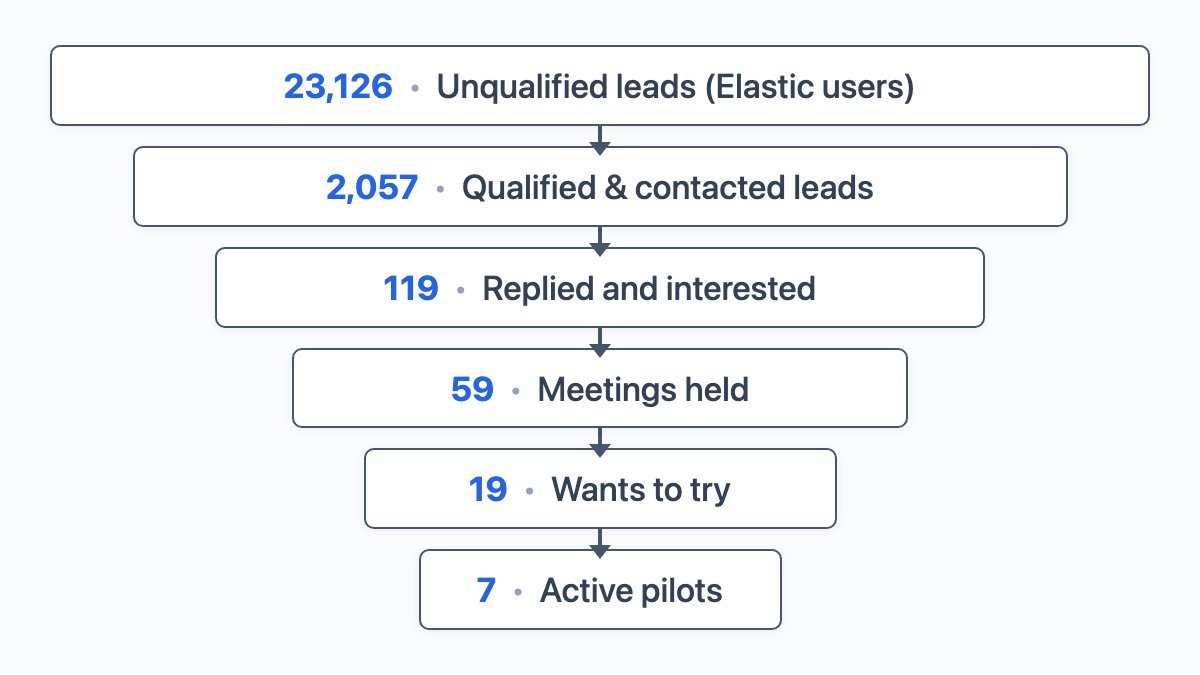
In the glossy narratives of tech unicorns, failure often gets sanitized or silenced. But Jacek Migdal, former early employee at Sumo Logic and founder of database proxy startup Quesma, is breaking that pattern with a raw postmortem of his venture's collapse after raising $2.5M. His story—detailing a pivot to an asset sale just one year post-funding—offers a masterclass in why even technically sound solutions falter when market dynamics and team dynamics collide.
The Co-Founder Myth and the Solo Path
Migdal's first misstep was ideological: an obsession with securing an 'equal co-founder,' driven by startup lore epitomized by Paul Graham's warnings against solo founders. "I convinced a friend to be an entrepreneur—someone successful at established companies but lacking the zero-to-one gene," he writes. The result? A year wasted on recruitment and eventual separation, leaving Migdal to rebuild alone. His counterintuitive lesson: A strong founding team with significant equity trumps forced co-founder equality. Without a co-founder, he offered higher equity to early engineers, attracting talent craving ownership—proving that solo founders can thrive with the right incentives.
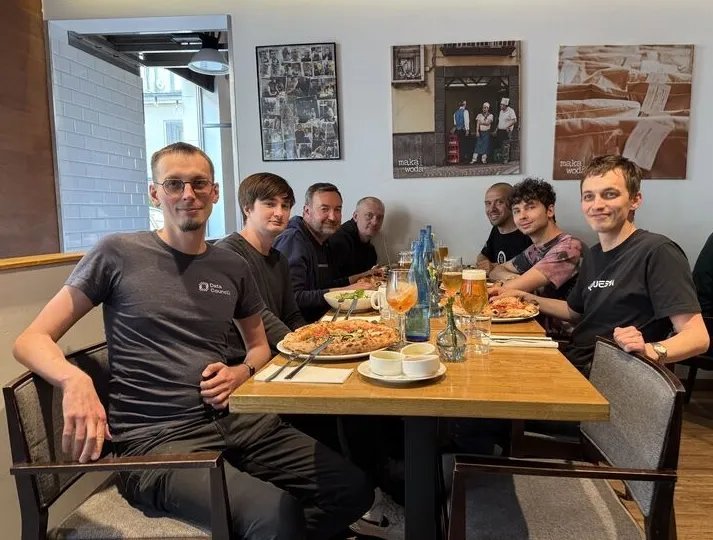 The Quesma team during their 'two-pizza' phase—small, agile, but ultimately unable to escape pilot purgatory.
The Quesma team during their 'two-pizza' phase—small, agile, but ultimately unable to escape pilot purgatory.
Building on Shifting Sands: Database Proxies and Market Mirage
Quesma aimed to modernize legacy databases via a gateway translating ElasticSearch queries to ClickHouse SQL—a pain point validated by 80+ customer discovery calls. With pedigree from Sumo Logic's IPO journey, Migdal secured $2.5M from Inovo and Heartcore, assembling a lean six-person team. Yet technical complexity dwarfed estimates: their MVP took nine months instead of five, echoing Vitess's eight-year gestation at Google. Worse, their target market—ELK stack users—had largely migrated pre-launch, leaving only slow-moving enterprises. "We targeted late majority companies," Migdal notes, "where cost savings ranked 12th on priority lists—never top three."
Pilot Purgatory and the Feature vs. Product Trap
By summer 2024, Quesma faced a critical leak: high-profile prospects (including a Fortune 500 firm) voiced interest but rarely engaged. 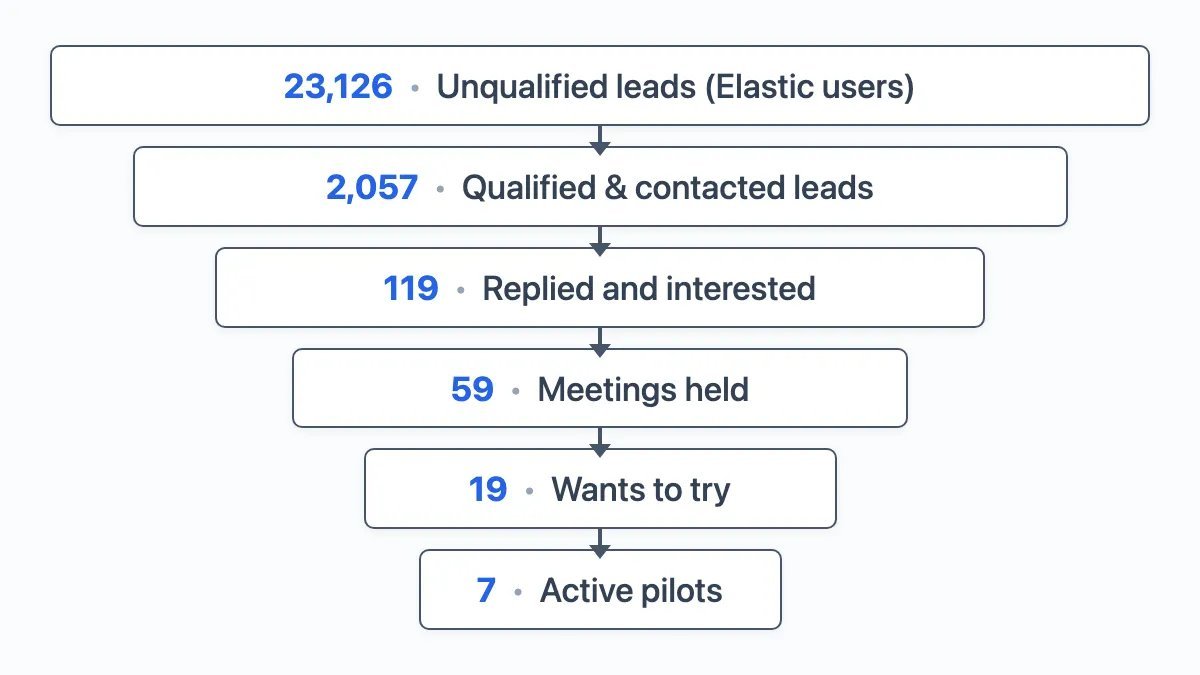 illustrates the stark drop-off—from verbal enthusiasm to sparse active pilots. A lone bright spot emerged when Hydrolix adopted Quesma to meet Kibana compatibility demands, but momentum stalled. Migdal attributes this to flawed validation: "Require concrete action, like running a script, to gauge intent." Meanwhile, generative AI accelerated database migrations, undermining Quesma's core value proposition. The existential question crystallized: Was this a standalone product or just a feature? Users saw it as a gap-filler for existing solutions, not a must-have tool.
illustrates the stark drop-off—from verbal enthusiasm to sparse active pilots. A lone bright spot emerged when Hydrolix adopted Quesma to meet Kibana compatibility demands, but momentum stalled. Migdal attributes this to flawed validation: "Require concrete action, like running a script, to gauge intent." Meanwhile, generative AI accelerated database migrations, undermining Quesma's core value proposition. The existential question crystallized: Was this a standalone product or just a feature? Users saw it as a gap-filler for existing solutions, not a must-have tool.
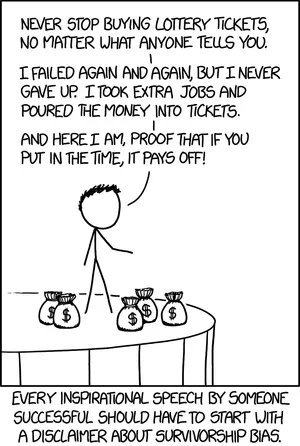 Survivorship bias in tech—failures like Quesma's rarely make headlines, yet they offer pivotal insights.
Survivorship bias in tech—failures like Quesma's rarely make headlines, yet they offer pivotal insights.
The Pivot: Selling Parts, Saving the Team
In early 2025, Migdal dissolved his co-founder partnership and confronted investors with a hard truth—Quesma needed to pivot. The outcome? An asset sale to Hydrolix (which had scaled 8x using Quesma's tech), providing runway for reinvention without further funding. "Many founders would call this a success," Migdal reflects. "For me, it’s a learning step." His takeaways resonate for any tech builder:
- Avoid conference booths pre-product-market fit—they drain resources without yielding actionable feedback.
- Revenue generation beats cost savings—enterprises prioritize income over efficiency.
- AI is eroding legacy migration pain—assess if your solution has a shelf life.
Migdal's candor underscores a vital lesson for developers: In tech's unforgiving landscape, agility and honest introspection outweigh pedigree and funding. As database and AI tools evolve, his story is a stark reminder that solving hard technical problems isn't enough—you must also solve the human and market equation.
Source: Adapted from Jacek Migdal's post on Quesma.
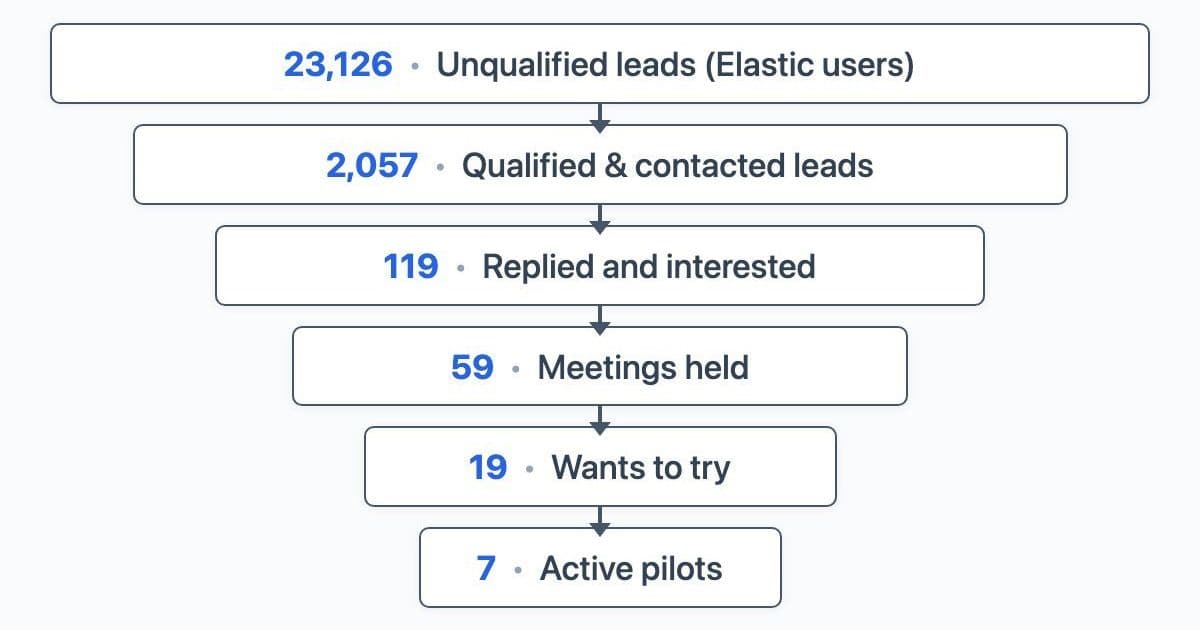
Comments
Please log in or register to join the discussion